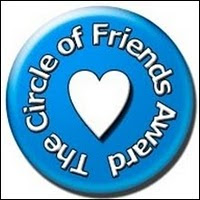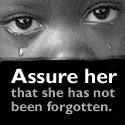In the little over a year that I have been reviewing books on my blog, one of my favorite new young authors is Jennifer Erin Valent. I had the pleasure to read the last book in her trilogy set in the 1930s, ‘Catching Moondrops .’
.’
Here is the synopsis of this novel :
:
Jessilyn Lassiter no longer has to convince people she has grown up. Having just turned nineteen in the summer of 1938, her love for Luke Talley has never been more real. And Luke is finally beginning to care for her in the way she’s always dreamed.
But their budding romance is interrupted when Tal Pritchett – a young black doctor – comes to Calloway, stealing the heart of Jessilyn’s best friend, Gemma, and stirring up the racial prejudice that has been simmering just beneath the town’s surface.
The tension starts to bubble over when Miss Cleta, Jessilyn’s neighbor, becomes the first white townsperson to accept Tal’s treatment. And when a young man is lynched, Calloway is brought to its knees once again as Jessilyn realizes that anger can make her heart as full of hate as the Klan members who have terrorized her family and her town.
Here is the biography of this talented young author:
Jennifer Erin Valent is the 2007 winner of the Jerry B. Jenkins Christian Writers Guild First Novel contest for Fireflies in December . Her debut was followed by Cottonwood Whispers
. Her debut was followed by Cottonwood Whispers , and Catching Moondrops
, and Catching Moondrops is the third book in that trilogy. Jennifer lives in central Virginia, where she has worked as a nanny for over fifteen years.
is the third book in that trilogy. Jennifer lives in central Virginia, where she has worked as a nanny for over fifteen years.
I have had the pleasure to be Jennifer’s friend on Facebook for the past year. She is a wonderful lady; we enjoy chatting up Godiva Chocolate, and she favors Pittsburgh sports teams, while I root for my native Detroit teams. It has been fun to get to know her virtually, and I have also loved reading her wonderful writing.
This book opens on a powerful note:
There’s nothing in this whole world like the sight of a man swinging by his neck.
Folks in my parts like to call it “lynching,” as if by calling it another word they could keep from feeling like murderers. Sometimes when they string a man up, they gather around like vultures looking for the next meal, staring at the cockeyed neck, the sagging limbs, their lips turning up at the corners when they should be turning down. For some people, time has a way of blurring the good and the bad, spitting out that thing called conscience and replacing it with a twisted sort of logic that makes right out of wrong. (p. 1)
That is a strong statement that brought two thoughts to mind: 1) shock that lynching were still happening as late as 1938; the thought that the abortion industry does the same thing with semantics as the Ku Klux Klan did with lynching.
The first appearance in town of Tal Pritchett was also enlightening. This scene includes Tal, Jessilyn, Gemma, and a young black man, Malachi; the story is written from Jessilyn’s perspective:
The man who helped Noah shoulder the burden of Malachi reached out to take the gauze from Gemma. “Why don’t you let me get that?”
Gemma didn’t much like being told what to do, and she glared at him. “I can clean up cuts and scrapes. I worked for a doctor past two years.”
Malachi nodded toward the man. “This here man is a doctor.”
I was putting iodine on a piece of cotton, and I near about dropped it on the floor when I heard that. Never in all my born days had I seen a colored man claiming to be a doctor. Neither had Gemma by the looks of her.
“A doctor?” she murmured. “You sure?”
He laughed and extended his hand to her. “Last I checked. Tal Pritchett. Just got into town yesterday. Gonna set up shop down by the tracks.”
Gemma handed the gauze over to him, still dumbfounded.
“What d’you think about that?” Malachi grinned and then grimaced the minute his split lip made its presence known. “A colored doc in Calloway. Shoo-whee. There’s gonna be talkin’ about this!”
The doctor went to work cleaning Malachi’s wounds. “I ain’t here to start no revolution. I’m just aiming to help the colored folks get the help they deserve.” (p. 3)
That passage clearly shows to me how well Jennifer handled the dialogue of this period piece so very well.
I love the relationship between Jessie and Luke. Here’s an exchange after a long separation:
He strolled slowly up the walk, a smile building with each step, and when he came within two feet of me, he stopped. “Jessilyn, you’re a sight for sore eyes.” Then he tossed his hat on the porch step behind me and pulled me close.
Even though his arms didn’t embrace me in the kind of way I wished for, there was no better place to be in all the world, and I wanted to stay there for the rest of my life. Even at five-feet-eight and in my pretty new shoes, I had to stand on tiptoe to reach his neck.
“It’s been two long months,” I whispered in his ear.
He pulled away from me to look at my face, and for one flickering moment I saw the brotherly smile slip from his eyes to be replaced by something far more to my liking. “Two days is too long.” (p. 15)
What you might be hearing is the heavy sigh from me all the way from Metro Detroit here in 2011!
An incident that happened in the second book in this trilogy, ‘Cottonwood Whispers,’ changed and touched Luke in a profound way:
The sight of Mr. Poe giving up his life so willingly was stamped on his consciousness like he’d been branded, and it changed him for good. It was like a switch had been flicked, and that light that I’d seen in my family and in Miss Cleta suddenly started to glow inside of him. It was a change that brought him closer to the God that has always been a dividing line between me and those dearest to me, and it didn’t settle well in my heart.
“It’s the best thing possible for Luke,” my momma had told me a short time after. “And any woman who loves her man wants what’s best for him no matter how it makes her feel.”
But I was a selfish girl, I knew it well, and I didn’t want there to be any kind of separation between the two of us for any reason. It only served to rough up my heart like that sandpaper Luke had in his hands. I said as much to Momma once, and she told me sandpaper eventually smoothes things out, so my heart should be good and ready soon. But I wasn’t keen in being roughed up, and when Luke stood and stretched, I pushed through all thoughts of God and Bibles aside and called out a hello. (p. 51)
This book includes some wonderful lessons on forgiveness and what bitterness and anger can do to us. Here’s an exchange between Jessie and Miss Cleta; Miss Cleta begins:
“No, forgivin’ them cleans up our hearts. Unforgiveness is a poison, Jessilyn Lassiter. A poison! It’ll eat you up inside sure as you’re sittin’ there. Don’t you go throwin’ your life away on it. You do, and you’re better’n they are.” (p. 149)
And here is Jessie’s reaction/perspective:
Bitterness and anger are evil twins that follow a body around wherever she goes, and they whisper things in her ears that don’t do much but make bad things worse. Maybe I didn’t know much about most things, but I knew there wasn’t much good in me that day, and I walked away from Miss Cleta’s house stewing in hot juices, just wishing for my chance to give back some of the bad stuff that had come my way. And that’s why when I decided to walk into town I took the long route instead of the short. (p. 151)
There are also other spiritual truths:
Gemma believed in Satan and demons and all that sort of thing. I believed in God and heaven and hell, so I figured there had to be someone in charge of hell, but I didn’t quite believe in the kind of Satan Gemma did. The way she saw it, this whole earth was just covered in good spirits and bad spirits, all fighting against each other every day like some sort of perennial battle of good and evil. But Gemma was a hand-raising, Jesus-praising Christian, and I figured her ideas of such things were as dramatic as all her other church ways. I’d told her as much in the past. (p. 156)
This book ends on a positive note in many different areas (you will have to read it to find out!). I also read the second book in the series, ‘Cottonwood Whisper’ (you can read my review here). I thought it was so well written, and Jennifer did a great job writing fully developed multi-faceted characters. It is important in a novel that the characters are sympathetic; this trilogy is full of them. I am sorry to admit that I still have not read ‘Fireflies in December,’ which I do own. I plan on doing that sometime in the future (when my pile of books requiring reviews is depleted). I congratulate Jennifer on her debut trilogy, and I greatly look forward to reading more books from her in the future. I hope Tyndale House or another publisher brings more of her work to the market soon! I certainly hope we have not seen the end of the stories of Jessilyn, Luke, Gemma, Tal and the rest!
You can order this book here .
.
The Advance Reader Copy of this book was provided by the publisher, Tyndale House, and provided by them for review purposes. The quotes and associated page numbers may not exactly match the final product, which is currently available.




























.jpg)







2 comments:
I am reading this book now. I usually go through books quickly, but I am reading this one nice and slow, because I don't want this story to end! I have fallen in love with all the characters, so it will be difficult for me to read the last page and put these characters/friends behind me. I am not sure how much longer I can wait until she comes out with new books!!
I agree about not wanting to leave the characters behind! Jennifer is a terrific writer - & seems to be a wonderful person!
Post a Comment